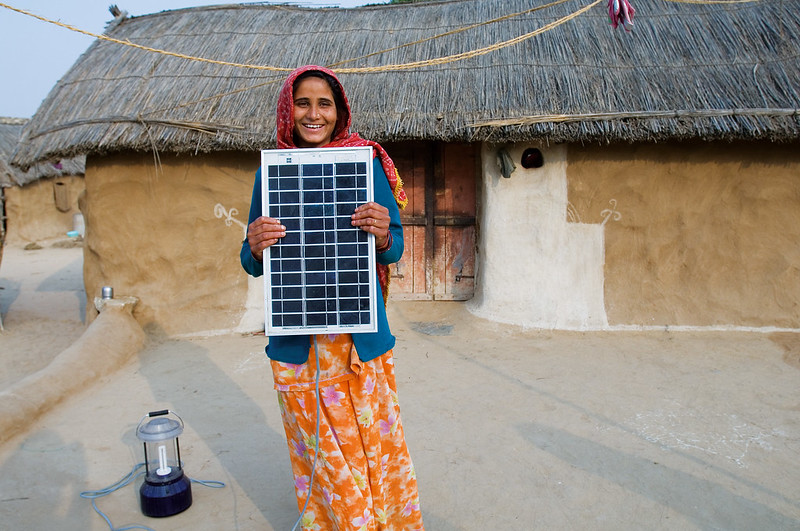Female Solar Technicians in India

In February 2022, the United Nations Environment Programme (UNEP) teamed up with Renew Power, the prime renewable energy company in India and the Indian Self-Employed Women’s Association (SEWA) to train 1,000 women in Gujarat, India, to become solar panel and solar pump technicians. The project provides women who previously worked as salt farmers in India with the opportunity to develop fulfilling, well-paying careers in the solar energy industry. The program may eventually extend to other areas of India and help more women gain financial independence and security. Female solar technicians in low-income communities support themselves, their families and their communities by building infrastructure and promoting renewable energy.
From Salt Farmers to Solar Technicians
Salt farmers in Gujarat, India, endure strenuous physical labor to build huts, dig wells and extract brine they sift through to harvest salt. Female salt farmers rarely receive contracts for their work and earn minimal pay. As an alternative to salt farming, the UNEP, SEWA and the state of Gujarat provided about 1,000 women with opportunities to develop constructive skills and careers as solar technicians. The women learn technical skills at SEWA training centers and Renew Power solar facilities throughout the state. The Electronics Sector Skills Council of India has also provided participants in the program with technical training. As solar technicians, women in Gujarat who previously worked as salt farmers are able to develop valuable skills and develop stable career paths to support themselves and their families.
Sustainable Poverty Reduction
In 2019, 759 million people globally did not have access to electricity, a resource that plays a key role in efficient cooking, access to health care, education and more. Low-income families are often unable to afford electricity, so they live without it or purchase unsafe, nonrenewable energy options. Many low-income families rely on kerosene for electricity because they can buy small amounts of it at a time with the money they have.
However, kerosene can cost up to 30% of a family’s total income, according to a 2012 Yale School of the Environment article and it often pollutes the air passed safe levels for human health. Solar panels, on the other hand, provide up to 20 years of renewable electricity, but the initial 10-year investment is too expensive for most low-income families. Female solar technicians in Gujarat benefit from renewable energy careers not just through incomes but also the ability to help their communities by building a sustainable energy infrastructure that can serve low-income areas for decades.
Energy and Gender Equality
Women and girls account for 70% of people who live in energy poverty. Energy poverty has serious consequences for women, especially when it comes to cooking, girls’ education and the success of small businesses. Energy initiatives that improve access to electricity and train female solar technicians in low-income areas have social, economic and environmental benefits. Women participating in these initiatives attain well-paying jobs, gain access to affordable electricity and promote renewable energy in their areas.
Initiatives to employ women and install solar panels can be highly beneficial in low-income areas. Private organizations, companies and governmental institutions can work together to increase access to clean energy in countries around the world. Renewable energy boosts the quality of life while simultaneously conserving the environment.
– Cleo Hudson
Photo: Flickr
